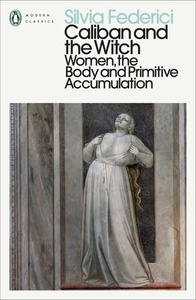Take a photo of a barcode or cover
informative
There's a blatant point in chapter three where it's clear that the author has run out of things to say and starts repeating herself - that's quite possibly one of the flaws of the books, a tendency for ongoing repetition that can be understood due to the genre but that made the reading a bit dreadful at times.
The other flaw is most definitely the almost dismissive way race is considered here as well as the typical white feminist tendency of associating things to slavery when they don't really come near what slavery was.
Still it's a compelling read, filled with solid arguments and pretty interesting references that can easily drive the reader into researching the subject further. Which, in my opinion, seems to be Silvia's main goal and thus she executed it pretty well.
The other flaw is most definitely the almost dismissive way race is considered here as well as the typical white feminist tendency of associating things to slavery when they don't really come near what slavery was.
Still it's a compelling read, filled with solid arguments and pretty interesting references that can easily drive the reader into researching the subject further. Which, in my opinion, seems to be Silvia's main goal and thus she executed it pretty well.
There's a lot here to chew on, I think I'll have a better review in a week or so
This is a really interesting text exploring women and the costs to women (the violence against women) inherent in shifts to capitalism, primarily in Europe (which we'll hit on later.) Federici is drawing together a LOT here, and in some cases, drawing together vast bodies of literature that don't speak very much to each other. In some cases, I was left wondering if her reach was too broad here, because I wasn't sure it all came together. At the beginning of the book, she discussed how, rather than focus on the titular Caliban, she was going to focus on the witch, but for me, the focus on European women overwhelmed the mentions of indigenous or African women, and how colonization deeply shaped not just developments of capitalism in Europe, but also ideas about womanhood more generally. Federici gestures at it sometimes, and works really hard to claim that poor women are demonized before colonization happens, but I'm not sure she really gives the claim as much weight or engages with it as much (especially thinking about African women and reproductive capacity, etc. etc.)
Which is not to say she's not making an impressive argument here, just that maybe I wasn't convinced by all parts of her argument. Regardless, I think this is a really fascinating look at the gendered aspects of the closures of the commons and beyond. I'm not sure I'm as well-read in Marxist history as I should be to approach this book, but I felt like I could mostly understand her arguments in spite of that fact.
Which is not to say she's not making an impressive argument here, just that maybe I wasn't convinced by all parts of her argument. Regardless, I think this is a really fascinating look at the gendered aspects of the closures of the commons and beyond. I'm not sure I'm as well-read in Marxist history as I should be to approach this book, but I felt like I could mostly understand her arguments in spite of that fact.



